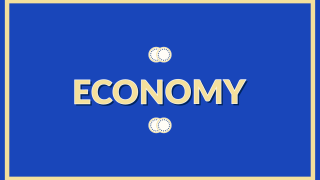President (and now presidential candidate) Obama frets about the poor, dislikes big business and believes that the government can solve all problems. And to top this off, he rejects the importance of entrepreneurial creativity, demonizes the creation of wealth and considers social confrontation a useful instrument for advancing his political, social and economic agenda. Every day he reminds me more and more of Echeverría, a president full of good intentions who ended up destroying everything that worked well in Mexico.
On initiating his mandate, Echeverría found himself in an unusual situation for the economy: for the first time in decades, its performance was below 4%. Although this growth rate would be seen as extraordinary in these days, growth in the year 1970 was discernibly inferior to the 6.5% that had been the average during the four previous decades. Like all presidents since then, Echeverría attempted to recover high growth rates. The problem was how he did this and the consequences of his actions.
The Mexican economy had been showing signs of weakness from the mid-sixties. The year 1965 was the last that the country exported corn, one of the many grains and mineral products whose export financed importation of inputs for industry. This fact indicated that the economy required structural changes to maintain its rate of growth and to satisfy the needs of a rapidly growing population. From that point on sharp debate broke out within the government on how to respond and two views materialized very quickly: one, which proposed a process of gradual liberalization that would not place the survival of industry at risk but that would provide it with long-term viability; and the other, which proposed a strong stimulus to the economy through public spending. Echeverría took the lead on the latter view of the world and exploited the 1968 Student Movement to modify the government’s strategy, to subordinate the society and to create a climate of hostility towards the private sector.
Growth of public expenditures didn’t take long to build and by the fourth year of Echeverría’s term was nearly four times that of 1970. With the spending explosion, ministries, public enterprises and government trust funds mushroomed. In addition, regulations were modified and laws were passed, all of which had as their objective that of consolidating the bureaucracy in economic decision-making, limiting the ambit of private-sector activity and reducing the presence of foreign investment to the minimum.
In a few years, Echeverría not only modified the profile of the economy but also that of the society. The growth of spending and of the government was accompanied by two ills that took decades to resolve: the foreign debt and inflation. On the other hand, Echeverría inaugurated a style of rhetoric that had not constituted part of Mexican politics in over a half century: class struggle. As part of this, he modified school texts to incorporate his political philosophy, a factor that sowed the seeds of the confrontation that we have been actively experiencing, literally, to the present day. His permanent confrontational strategy with the business community destroyed the legitimacy of employers and the sole creators of wealth and began perhaps the worst of the evils of his legacy: distrust. The result of his administration was inflation, crisis and a deeply polarized society.
By any yardstick, Obama is having the same effect on his society. Because it is a fully institutionalized nation, the impact of a U.S. president on his country is much less than that of those who were (nearly) omnipotent presidents in Mexico; however, Obama has devoted himself to fomenting the same brand of antagonism and hostility as that of Echeverría in Mexico.
What happens in the U.S. has consequences for Mexico. Our exports to the U.S. are the main engine of our economy. Were the U.S. to weaken its pro-entrepreneurial tradition, Mexicans too would suffer the consequences. Social approval and full legitimacy of the business is critical for wealth creation: without it, nobody would be willing to assume risks in a hostile environment. Mexicans know this full well and have paid dearly for it. It would be a tragedy for the U.S. to fall into the same, self inflicted, path.
Although there is no doubt that Obama stepped into an economic crisis of enormous dimensions, his performance during these four years has been disastrous: instead of attending to the causes of the crisis, he has devoted himself to wasting the resources slated for stimulating growth and feuding with his political opponents, but above all attacking the sole potential creators of wealth: the entrepreneurs.
Part of the U.S. president’s actions reflects his lack of experience as a politician. For example, rather than controlling the use of monies designated for the economic stimulus, he permitted the then congressional leader to get away with doling out a little more than one trillion dollars in funds (the equivalent of 100% of the Mexican GDP) to unions, interest groups and the pet projects of her legislative contingent. This is neither good nor bad, except that the projects that politicians and special-interest groups typically embrace are neither the most productive nor are they those that, in the words of the economists, exert the greatest multiplier effect. Those defending Obama’s actions say that his not undertaking that amount of spending would have caused an economic collapse.
Since it’s impossible to prove what didn’t happen, U.S. society spends its time disputing a) whether there should be a new stimulus package; b) whether the brutal growth of the public debt should be tackled; or c) whether the entire structure of the economy should be revised. The debate in the U.S. is not very distinct, in concept, from that which has characterized Mexico since the end of the sixties.
As Milton Friedman once said, public programs should be evaluated by their results and not by their intentions. The result of Echeverría’s term was disastrous: decades of antagonism, near hyperinflation, inefficient government and the legitimization of conflict as a strategy of permanent struggle. The result of Obama’s term remains to be seen but I have not the least doubt that he has incorporated a novel element into U.S. politics: class struggle.
For privileged observers such as Lipset and de Toqueville, what has distinguished Americans in their more than two centuries of existence is their exceptional capacity to adapt and assimilate persons and ideas, as well as the belief in equal opportunity that legitimizes their entrepreneurial vitality. Obama is threatening what Echeverría consigned to the graveyard: the credibility of those who can make possible the transformation of their country.
Obama and Echeverría






Comments